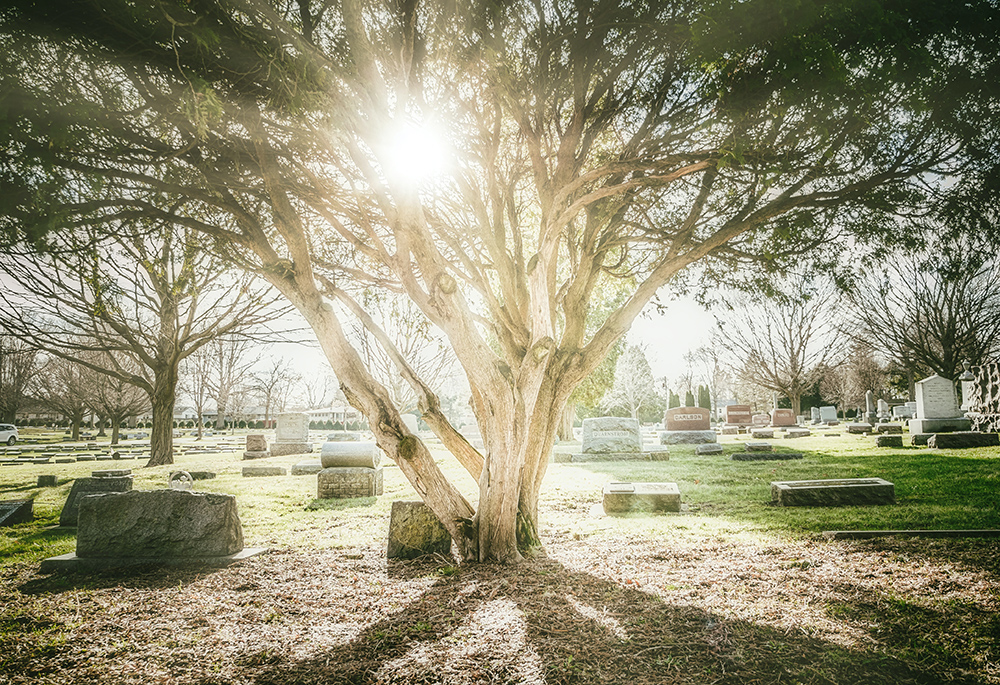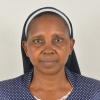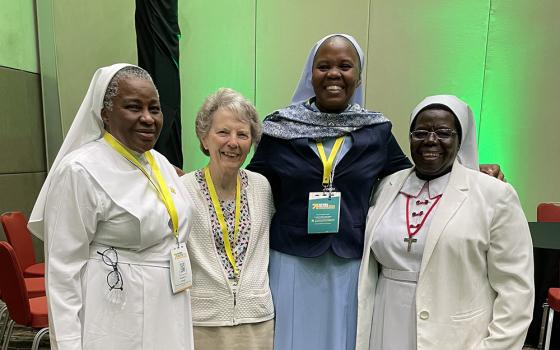
(Unsplash/Kevin Andre)
As long as we live, the basic questions of life that each human being asks will remain. Some of these questions include: Who am I? What is my origin? What is my purpose in this life? Where am I going? And, what will be my end? It is hard to get direct answers except to live each day at a time and see how our life unfolds. As we remember our faithful departed, the last two questions are of particular interest: Where am I going, and what will be my end? This confirms what Job tells us, "Mortal, born of woman is short-lived and full of trouble" (Job 14:1).
November gives us the opportunity to become more aware that the phrase we commonly use to refer to the deceased, "those who have gone before us," means exactly that. These are our brothers and sisters who have shared the same reality with us, only that their time to return to God has come, and sooner or later, we will follow them. This implies that each earthly journey will eventually end.
What am I getting at? The month of November, when the church reminds us to pray for our faithful departed, is here with us. With every passing year, my list of departed ones is lengthening. Many people I have known and loved have died. This does not mean I do not pray for the ones I did not know. They might also have contributed directly or indirectly to who I am and our society today.
Sometimes, I wonder whether one month is enough to pray for so many of them. Likewise, I am concerned and ask myself, after I ask God to grant them eternal rest and reward in prayer, what else should I pray for the whole month? At this, I appreciate that I need to reflect deeper on their lives if I must pray for them meaningfully.
The month to pray for the dead, I reckon, is a time to recall the shapers of today's society. We are because they were. This implies that there is no disconnect between earthly life and death. Sometimes, people's lives make sense after they are gone. However, the memories of their time with us live on. Mary Sullivan, in her 2012 book The Path of Mercy: The Life of Catherine McAuley, puts it very well in her description of McAuley, the foundress of the Sisters of Mercy: "The birth of a girl and the death of the woman bracket the historical and cultural space between these two human moments. … In the end, the beginning assumes new worth because of the in-between."
This expression helps me understand what to consider when remembering the dead. We shared life with these people, and on their departure, part of us and a piece of our history went with them. The in-between time here denotes life given and received between an individual's birth and death.
We shared life with these people, and on their departure, part of us and a piece of our history went with them.
Some people live a long life while others die young, having influenced the people around them distinctively. Regardless of the length of life, of importance is that God's dream for their lives came true, irrespective of the kind of life they led. Without ignoring their suffering and pain of the loss of our loved ones, the memories of our time together are what often remain in our hearts. The companionship, the help rendered, the joys and sorrows shared, the care, the discipline instilled by the parents, and the great lessons of life learned make a lifelong spring from which to draw inspiration. It dawns on me that the month to pray for the dead is a time to thank God for them, and uphold the values and legacies they passed on to us.
Speaking of the lessons learned, the lives of the faithful departed, especially those we admired, give us a frame of reference on which to base our own. This is an invitation to become more conscious of what I live each day, and to choose the real good. Their lives hold the mirror for us to look at ourselves and see whether we are still on the track. This keeps us in touch with the reality that this world is not our home, and to think of the legacy we too will leave behind.
Recently, I traveled abroad, and as we all know, this requires a number of documents, including an up-to-date passport, ticket, medical records, and an invitation letter. I minded them carefully, lest I miss the trip or get into trouble at any stopover. At the start of the journey, I needed to have all the documents together and produce the one needed at any given time.
On the return journey, I realized some documents had already served their purpose, and I did not need them. It was like ticking a checklist, and to my surprise, by the time I arrived back home, the only relevant document was my passport. It identified me as a citizen of my country and eligible to be admitted back home.
Advertisement
I likened the passport to my relationship with God. I became cognizant that all I have, including skills, talents, people, plus material resources, are meaningful to the extent that I utilize them to serve God. Jesus gives us only two commandments, which he says are similar: to love God with all my heart and my neighbor as myself (Matthew 22:37-40).
The song "People Like You" by Gramps Morgan captures this well when it says: "If you give a little more than you take/ And if you try to fix more than you break/ If you're the kind …/ To help a stranger in the rain/ … I believe when your days down here are through/ There's a place up there for people like you."
Many of our faithful departed endured in doing good. On the other hand, some struggled to live the Gospel. As we pray for them, we thank God and ask him to forgive them for their sins. For those in purgatory, we pray that one day they will go to heaven to be with him forever.
In a special way, I remember my parents, particularly my mother, gone 27 years ago. Besides providing basic needs with the support of my father, I remember her generosity. She was an ordinary woman who lived extraordinarily well. I once heard some woman commenting that the only thing she could not give anyone was the breath of life, an ability reserved for God. She seemed not to count the cost. She was very prayerful.
The day I went for my first interview ever, I trusted that my mother's prayer would help me pass, and I was successful. She was such a disciplinarian that many years after her demise, her eyes are still heavy on me. I perceived her to be very tough, yet if it were not for her, I probably would not be where I am today. She still puts a smile on my face. Sometimes, I wish she lived to celebrate the work of her hands. Nevertheless, I know God is very happy with her because of the children she formed for society.
If everyone were to talk about their departed loved ones, the month of November would be one of celebrating the joyful mysteries.
May the souls of our faithful departed through the mercy of God rest in peace.








